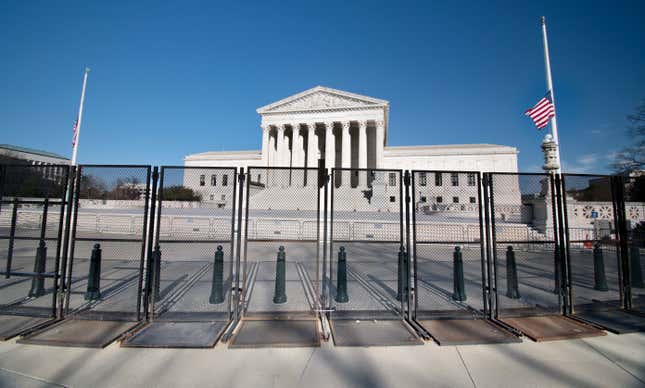
I can’t be the only Black girl who’s sat in a room with a group of white people and thought you know what, I’m not sure why this is racist, but something about this feels pretty damn racist.
So, when I started to hear people (mostly white people) say things like we really need an underground railroad for abortion, or forced birth is slavery, in the wake of the leaked Supreme Court draft signaling the end of Roe v. Wade, I felt on alert.
Thankfully, I’m a reporter with a Rolodex (inbox) full of people infinitely smarter and more capable than I am of calling out that sort of nonsense.
That includes people who like Oriaku Njoku, co-founder and executive director of Access Reproductive Care Southeast, an Atlanta-based abortion fund, who was quick to affirm my senses that yeah, this is some racist nonsense.
Let’s start with the basics, restricting access to abortion is an awful violation of people’s (this is not just a women’s issue), right to bodily autonomy. There’s a ton of evidence, that when abortion access is severely limited like it already is in much of this country, pregnant people, and especially Black pregnant people, do worse across a host of measures.
But abortion bans and chattel slavery are very different things, and trying to compare the two is unhelpful, and you guessed it, kinda racist.
Now, let’s talk about this new underground railroad language. We’ve already gone over the slavery comparisons, so I won’t belabor that point.
But, calls for a new underground railroad ignore the decades of work from Black people, like Njoku, who’ve set up extensive networks to help pregnant people in places where abortion is already all but inaccessible.
Cause let’s be real with each other here, this is not a new crisis.
All of the abortion bans, waiting periods, and parental consent laws aside, abortions are not cheap!
The average cost of a first-trimester abortion is $500, and as Njoku points out, most people, and especially most Black people in this country, do not have $500 just lying around.
And that’s where funds like her’s step-in to address all of the challenges, including and especially the economic challenges, that stand in the way of accessing abortion care.
We don’t need fear-mongering or white-led organizations to reinvent the wheel, Njoku told me, we need support and we need hope.
And for those who find themselves unable to resist the allure of slavery metaphors and fear-mongering, I think Njoku said it best.
“There’s honestly no place for inherently racist fear-mongering at all in this movement,” they said. “You can’t be saying that and expect Black folks to want to join your movement when you’re making these incredibly racist remarks.”

